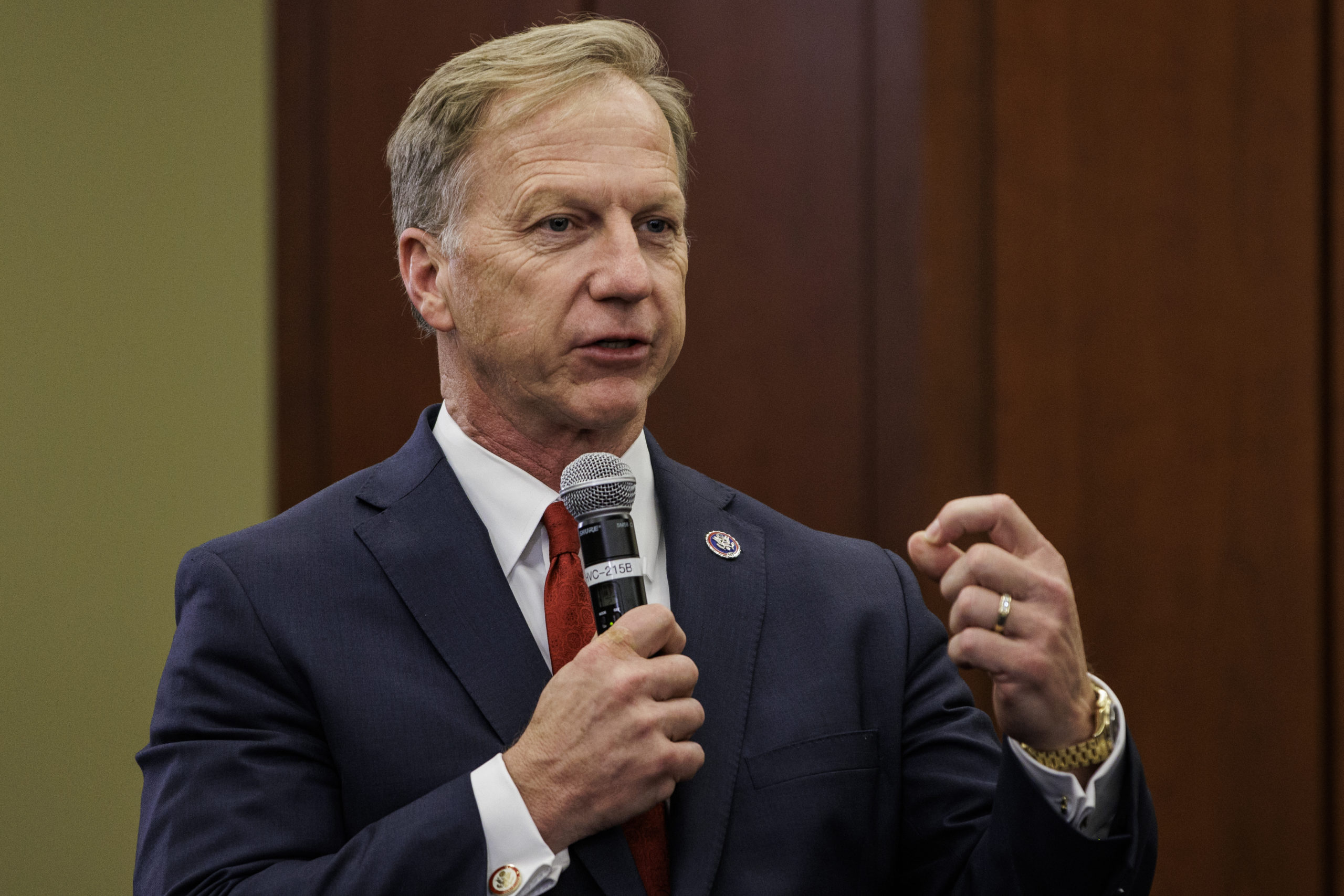Although GOP leadership is publicly pledging not to amend Social Security and Medicare, some members of the party insist on addressing the programs’ mounting debt.
The Social Security Trust Fund will go insolvent by 2033, according to the Congressional Budget Office. When that happens, benefits will immediately be slashed, and Congress will likely impose drastic tax hikes. Despite these impacts, Democrats uniformly oppose any program changes, and Republican leaders have blasted rank-and-file proposals that would raise taxes or the retirement age.
“If we do nothing, we’re going to have anywhere from a 25% cut to a 26% cut across the board,” Republican Study Committee (RSC) chairman Kevin Hern of Oklahoma told the Daily Caller. The RSC’s Blueprint to Save America FY2023 budget calls for raising Social Security’s early and full retirement ages and means-testing the program for future recipients. As part of his deal with 20 Republicans who initially opposed his speakership, Kevin McCarthy agreed to freeze the FY2024 budget at FY2022 levels. The RSC FY2022 budget takes a similar approach.
Biden is “pushing for insolvency by not doing anything,” Hern said in the interview. “If we look inside this budget window, there’s going to be an insolvency issue. And Joe Biden and the Democrats, and I would argue all Republicans, need to sit down and have an adult conversation about how we save what we promised to the American people.” (RELATED: Joy Reid Blows Fuse, Blurts ‘That’s Not True’ 13 Times Straight As Rep. Donalds Breaks Down Social Security Solvency)

WASHINGTON, DC – MARCH 01: Rep. Kevin Stern (R-OK) speaks during a town hall event hosted by House Republicans ahead of President Joe Bidens first State of the Union address tonight on March 1, 2022 in Washington, DC. (Photo by Samuel Corum/Getty Images)
GOP members of Congress and candidates for president, however, are reluctant to acknowledge the program’s shortfall. Former President Donald Trump said Republicans should not “vote to cut a single penny” from Medicare or Social Security, while Texas Rep. Chip Roy added that Congress would not “touch the benefits that are going to people relying on” them.
Former Vice President Mike Pence, on the other, argued that program cuts must be “on the table” as part of “long-term debt” reduction. A former RSC chairman, Pence has pushed private retirement savings accounts as a potential solution to the Social Security shortfall for more than a decade.
“This is about leadership not politics. The United States is facing a debt crisis over the next 25 years that is driven by entitlements, and no one in Washington, DC, is talking about it. Taxing billionaires isn’t going to help us avoid the financial calamity that is set to begin in the next five years, but neither is presenting no plan at all like some lawmakers seem keen to do. Vice President Pence is going to be honest with the American people, as he’s always been, and that means being straight with them about the need for getting our fiscal house in order,” a spokesperson for Pence told the Daily Caller.
Congressional GOP leadership, on the other hand, is less amenable to legislative fixes. Senate Minority Leader Mitch McConnell aggressively panned Florida Sen. Rick Scott’s proposal to sunset all federal programs, including Social Security and Medicare, after five years after Democrats made it a centerpiece of their midterm strategy. McCarthy has promised not to broach entitlement reform as part of the debt ceiling negotiations, and has not suggested doing so independently of the debt ceiling or appropriations process.
Hern prefers that Congress address entitlements through regular order, starting with the House Ways and Means Committee. (RELATED: Bernie Sanders Is Pushing Biden To Expand Social Security—And Hike Taxes In The Process)
“We have a Social Security subcommittee. We should sit there and look at it and work on it. We share responsibility for Medicare with [the House Energy and Commerce Committee]. We should talk to the appropriators about following our authorization, but you’re not going to get anything done until you find out where the Democrats are,” he said.
A bipartisan group of senators and representatives introduced the TRUST Act in the 117th Congress. That legislation would create committees to study and report legislation intended to shore up the Social Security, Medicare, and highway trust funds. Any bills reported out of the committees would receive expedited floor consideration. Republican Wisconsin Rep. Mike Gallagher, the lead sponsor on the House version, will reintroduce the legislation in the 118th Congress, his office confirmed to the Daily Caller.
Independent Maine Sen. Angus King, who caucuses with Democrats, and Republican Louisiana Sen. Bill Cassidy are reportedly preparing legislation that would gradually raise the retirement age to 70, change Social Security’s benefit formula, and create a sovereign wealth fund to increase the amount of money in the trust. Negotiators have also discussed raising the payroll tax cap, according to Republican South Dakota Sen. Mike Rounds.
Hern believes that any discussion about Social Security must be bipartisan, or the reform will be wielded as a cudgel by the party that does not participate.
“It’s such a political issue, forever. If Democrats sit down and talk about it, they can’t go use that against Republicans when they want to have a serious discussion about cuts,” he said. “Reform has a dirty connotation up here, it’s like you want to change everything. You want to cut it. And that’s not what we want to do at all. We want to sit down and make sure its solvent for the future.”


